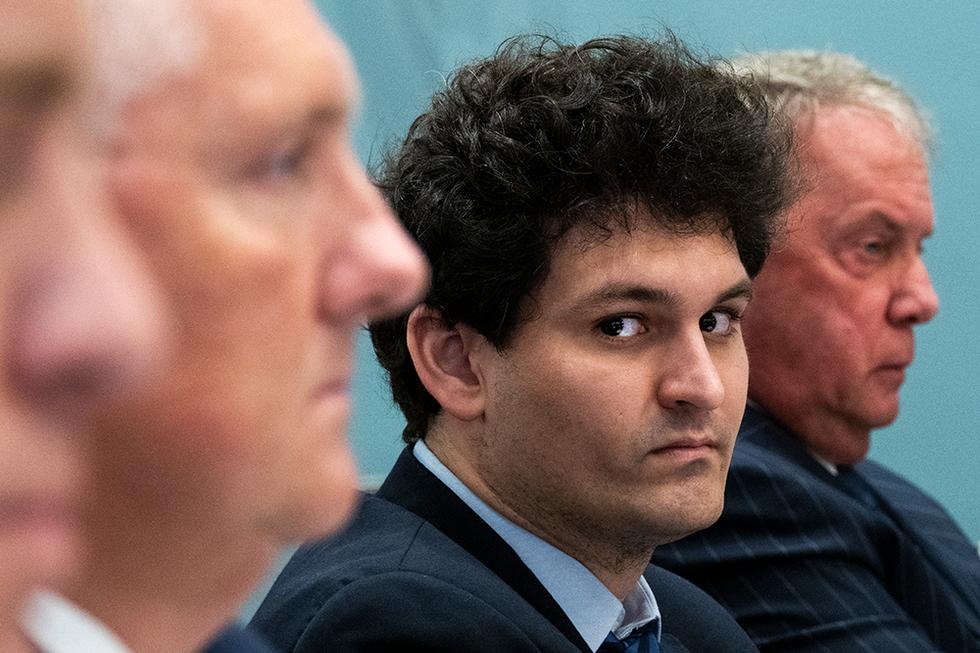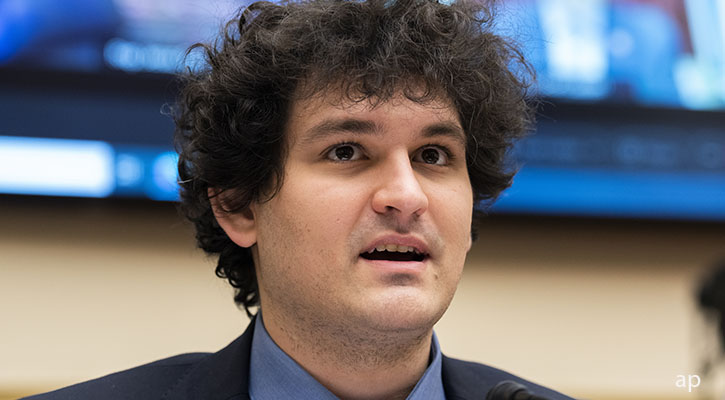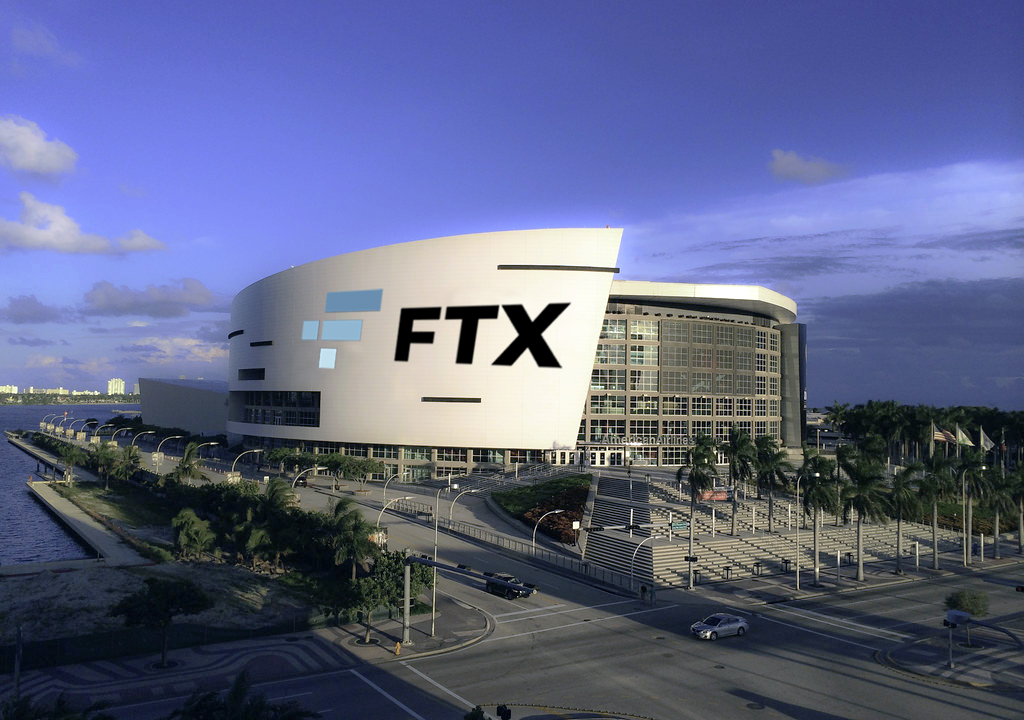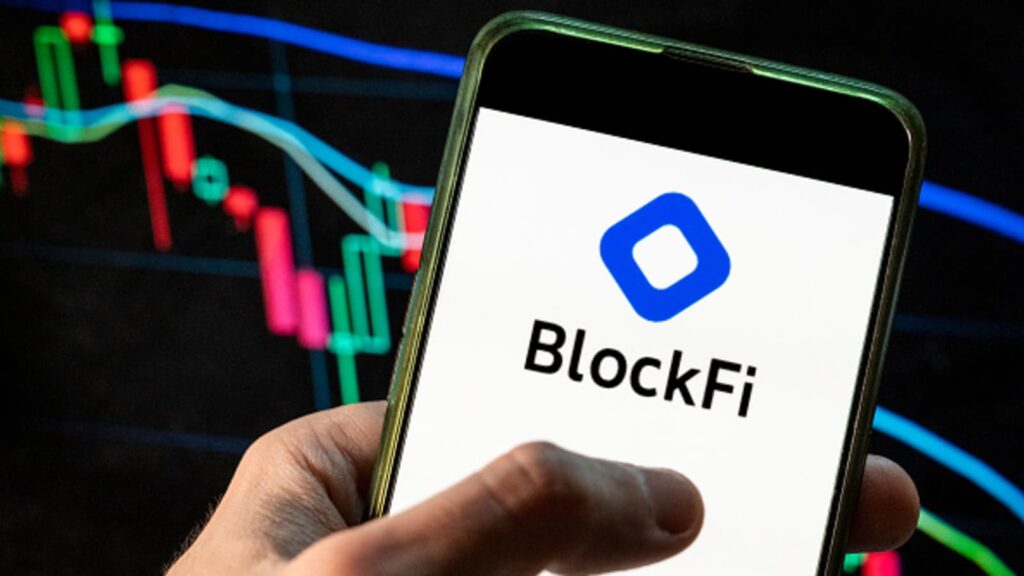Australia has further pledged to build a framework for regulating cryptocurrencies due to the ongoing crypto crisis, which erupted in mid-November.
A Wednesday AFR report cited a spokesperson for the Australian Treasury, who stated Canberra aimed to regulate crypto markets next year to protect investors.
The news comes after FTX collapsed around 11 November, with the Treasury stating it would monitor the fallout of the disgraced crypto exchange. This would include “further volatility in crypto-asset markets” and additional “spillovers into financial markets more broadly.”
The spokesperson added: “These developments highlight the lack of transparency and consumer protection in the crypto market, which is why our government is taking action to improve the regulatory frameworks while still promoting innovation.”
Treasurer Jim Chalmers’ spokesperson concluded: “We are closely monitoring the fallout from the FTX collapse, including further volatility in crypto asset markets and any spillovers into financial markets more broadly.”
Australian Crypto Proposal
Crypto assets were “increasingly widespread and” even began appearing on large sporting event advertisements. It urged regulators to ensure customers investing in crypto were “adequately informed and protected,” according to a recent Treasury letter.
Assistant Treasurer, The Hon Stephen Jones MP, continued in his letter, stating the Albanese Government would take a “more serious approach” to determine what was in the ecosystem and the risks involved.
He continued, stating: “The aim will be to identify notable gaps in the regulatory framework, progress work on a licensing framework, review innovative organisational structures, look at custody obligations for third party custodians of crypto assets and provide additional consumer safeguards.”
Crypto Crackdown?
It would create a system of “capital adequacy and auditing standards to demonstrate the operational integrity” for such platforms, he said. Talwar added that it was crucial to do so as many exchanges offer high-yield perks to compete with other platforms, despite a greater risk to investors.
Australian regulators could also lead the industry in regulating digital assets, which may include a ‘token mapping’ platform for identifying how to regulate assets.
He concluded: “When Australia brings in technology-enabling custody rules for centralized holders of crypto-assets, we will either be a leader in the space, or catching up, depending on how fast other jurisdictions, like Singapore and Europe, move to make rules.”
The comments come after the collapse of the FTX exchange, Alameda Research, and nearly 130 linked firms prompted governments worldwide to consider tightening regulations on crypto markets due to the aftermath. Reports have found roughly 30,000 Australians and the collapse hit 132 companies.
Brian Armstrong, Coinbase’s chief executive and co-founder, lauded independent journalists and blockchain analysts working to tackle the ongoing FTX collapse and mismanagement of funds from Sam Bankman-Fried, its disgraced former CEO.
Armstrong tweeted on Wednesday that citizen journalists, rather than global media, had exposed the events linked to FTX’s liquidity crisis and Chapter 11 bankruptcy.
He slammed a recent NYT piece, stating: “Twitter has broken just about every piece of this FTX story using blockchain analytics, while NYT is writing puff pieces on a criminal.”
Twitter has broken just about every piece of this FTX story using blockchain analytics, while NYT is writing puff pieces on a criminal.
— Brian Armstrong (@brian_armstrong) November 16, 2022
Feels like a turning point for citizen journalism and loss of trust in MSM.
He added it was a “turning point for citizen journalism and loss of trust in [the mainstream media].”
Twittizens Unite on FTX
Speaking on the matter, Elon Musk tweeted his support for citizen journalists. He said at the time that “increased competition from citizens” would lead to increased accuracy “as their oligopoly on information is disrupted.”
Additional condemnation of the NYT piece include Polygon Studios chief executive Ryan Wyatt, who said that Sam Bankman-Fried had “committed significant crimes [which were] a disservice to all those impacted.”
Mainstream media will still thrive, but increased competition from citizens will cause them to be more accurate, as their oligopoly on information is disrupted
— Elon Musk (@elonmusk) November 11, 2022
One such journalism outlet, Whale Alert, found in early November that users had transferred roughly 23 million FTX tokens (FTT) to finance, totalling $584.8 million USD or 17 percent of market supply. The NYT did not write about the incident until 8 November, according to reports.
Twitter Spaces also hosted several meetings for The Roundtable Show, hosted by Mario Nawfal, which covered the crisis as it unfolded. It hosted several prominent people, including Kim Dotcom, Musk, and others, leading to a surge in interest related to the FTX scandal.
User Tobias Silver also revealed a major FTX Tron account hack, leading to a major investigation on the person responsible for the incident. News later revealed that Tether had blacklisted the people, found to be regular users, from moving roughly $47 million in Tether (USDT) from FTX to Kraken.
Kraken’s chief security officer later revealed them to be “normal people who have lost their life savings,” according to Silver.
An executive from Paradigm, an asset management firm, tweeted on Tuesday it had felt “deep regret” for investing in FTX and its disgraced chief executive Sam Bankman-Fried following the exchange’s collapse.
We are shocked by the revelations about FTX, Alameda, and SBF.
— Matt Huang (@matthuang) November 15, 2022
Matt Huang, co-founder and managing partner for Paradigm, a San Francisco-based venture capital firm, tweeted at the time:
“We feel deep regret for having invested in a founder and company who ultimately did not align with crypto’s values and who have done enormous damage to the ecosystem.”
Facts are still coming to light, and there will be many lessons to learn. We feel deep regret for having invested in a founder and company who ultimately did not align with crypto’s values and who have done enormous damage to the ecosystem.
— Matt Huang (@matthuang) November 15, 2022
Paradigm’s managed assets totalled roughly $13.2 billion USD, according to reports in April. It also contained FTX and FTX.US in its investment portfolio, with investments around $278 million.
Paradigm’s equity investment in FTX constituted a small part of our total assets and has now been written down to $0. We never traded on FTX and did not have any assets on the exchange. We have never been investors in related tokens such as FTT, SRM, MAPS, or OXY.
— Matt Huang (@matthuang) November 15, 2022
Huang also stated the total equity investments in FTX “constituted a small part of our total assets” and had been “written down to $0.”
He added: “We never traded on FTX and did not have any assets on the exchange. We have never been investors in related tokens such as FTT, SRM, MAPS, or OXY.”
The news comes after Sequoia Capital was also forced to write off its investments in FTX, citing a total loss of $213.5 million. FTX’s liquidity collapse “created a solvency risk” with “limited” risk exposure, the company announced in a recent letter responding to the aftermath of the insolvency.
Several major cryptocurrency-based firms have reportedly seen their fortunes and capital marooned on the disgraced FTX exchange, with three revealing massive losses in funding.
News from Galois Capital, Nestcoin, and New Huo Technology has triggered layoffs amid the ongoing FTX scandal, where the Bahamas-based company filed for Chapter 11 bankruptcy last week.
For the record, yes we did have significant funds stuck on FTX. No, we did not use any Bahamian method to move funds out.
— Galois Capital (@Galois_Capital) November 11, 2022
Galois Capital stated it had “significant funds” on the FTX exchange, which reports speculate could total up to $50 million in assets.
Nestcoin, a Nigeria-based web3 enterprise, stated it would have to lay off workers due to the aftermath of the FTX scandal. The company’s chief executive, Yele Bademosi, tweeted on Monday a letter detailing it could not receive funds from the bankrupt crypto exchange, leading to the mass layoffs.
It stated that, due to maintaining its assets on the FTX platform to “manage our operational expenses,” it could no longer pay its staff.
An update shared with our investors earlier today on the FTX incident and its impact on @Nestcoin. pic.twitter.com/0Mjo4SYF7R
— YB (25,25) ⏳ (@YeleBademosi) November 14, 2022
Hong Kong-based New Huo Technology, which owns cryptocurrency exchange Hbit Limited, also revealed on 14 November it could not withdraw $18.1 million USD of funds before FTX halted transactions.
According to Hbit, it would work to withdraw cryptocurrency holdings for its users “as soon as possible” but may not be able to withdraw them from the FTX exchange due to its bankruptcy proceedings.
Reports show that roughly $18.1 million in digital assets were on the FTX exchange. Huobi founder Li Lin stated he would provide around $14 million in loans to Hbit to process withdrawals.
Binance Scandal Erupts
The news comes after FTX filed for bankruptcy on 11 November, with its nearly 130 FTX Group entities such as Alameda Research and FTX.US facing the fallout of its liquidity collapse. The incident blocked users from receiving their holdings, with many losing critical life savings invested on the platform.
Binance and FTX entered a non-binding letter of intent for the latter to purchase the former, but Binance CEO Changpeng Zhao (CZ) later backed out of the deal, citing major compliance issues with FTX
FTX former CEO Sam Bankman-Fried, co-founder Gary Wang and director of engineering Nishad Singh are understood to be in the Bahamas and are “under supervision” by local authorities.
Several key FTX executives, including former chief executive Sam Bankman-Fried, co-founder Gary Wang, and Nishad Singh, director of engineering, remained “under supervision” from Bahamian authorities.
A marathon Crypto Roundtable Show Twitter Space, hosted by Mario Nawfal, speculated disgraced former chief executive of FTX Sam Bankman-Fried remained “in a locked space” at luxury resort Albany Tower in the Bahamas.
Where’s Bankman-Fried?
Several rumours erupted, including that Bankman-Fried had joined his father, Joseph Bankman, and that authorities in the Bahamas had detained him at its main airport.
Speculators believe police had grounded his private jet for roughly 40 minutes ahead of its journey from Nassau to Miami.
When asked by Reuters whether he had fled to Argentina, Bankman-Fried responded in a text message he had escaped to Argentina and was still in the Bahamas.
The news comes after a report from the Wall Street Journal stated US Department of Justice and Securities and Exchange Commission officials were investigating the fallen crypto exchange.
California’s Department of Financial Protection and Innovation (DFPI) also stated last week it would investigate the exchange’s collapse.
A further WSJ report on Tuesday revealed Bankman-Fried had attempted to raise funds for his platform with several employees. The group aimed to raise up to $8 billion to repay FTX customers, sources familiar with the matter said at the time.
Binance chief executive Changpeng Zhao (CZ) urged new and inexperienced cryptocurrency investors on Monday to avoid trading amid the ongoing crypto crisis.
Zhao commented on a Binance ‘Ask Me Anything’ Twitter space that speculators and investors should not invest essential money needed for living expenses.
And we’re live!
— Binance (@binance) November 14, 2022
Tune-in to our Twitter space as @cz_binance will be answering all of your questions 👇https://t.co/4t8fJqQR1e
He said at the time: “You should not invest in crypto if you’re using money that you need for next week or next month, you should only be using discretionary cash that you don’t need for a long time, like maybe a couple of years.”
He added that those with little money to invest should reconsider investing their hard-earned money in the crypto industry in the near future.
He urged people not to “try to guess what’s going to happen” in crypto markets as they were “very hard to predict.”
He added: “[We] will go through a period of high volatility and unpredictableness. So unless you’re very experienced, very mature, very confident, and can handle the risk, I would recommend most people just hold for this period of time.”
FTX Collapse Hits Crypto Industry
FTX’s collapse sent ripples across the entire crypto industry already hit by the ongoing crisis, namely after the collapse of Terra/Luna, prompting several centralised exchanges to halt withdrawals.
When asked whether investors should trust the world’s largest exchange, Zhao stated: “We don’t have loans. We don’t have debt. We don’t owe anybody any money. We also did not give loans out of the platform. So we never take user assets and give it to a third party to manage and try to make yields.”
Trust in the platform fell after users withdrew funds amid the FTX collapse, but he restated that his platform would never block users from pulling out their funds.
He explained further, stating: “If everybody withdraws their funds from the centralized exchange, we’ll just shut down the centralized exchange. We have many other profitable businesses that we have.”
He concluded that the rise of mainstream decentralised finance (DeFi) would eliminate centralised exchanges.
He explained to the audience: “If we can have a way to allow people to hold their own assets in their own custody securely and easily, that 99% of the general population can do it, centralized exchanges will not exist or probably don’t need to exist, which is great.”
Visa has officially ended its strategic partnership with now-bankrupt crypto exchange FTX, Reuters reported on Monday.
A Visa spokesperson said as quoted by Reuters: “The situation with FTX is unfortunate and we are monitoring developments closely. We have terminated our global agreements with FTX and their U.S. debit card program is being wound down by their issuer.”
Fintech firm Plaid also suspended FTX US’s access to its services over what it states were “concerning public reports” of fraud.
The news comes just a month after FTX launched the deal allowing users to receive debit cards in 40 countries worldwide. Following the announcement, FTX’s native cryptocurrency FTT skyrocketed roughly 7 percent, or up to $25.62.
Last week, Binance chief executive Changpeng Zhao (CZ) revealed he would liquidate the company’s holdings of FTT, triggering a huge bank run and liquidity crisis for the troubled exchange.
The withdrawals led to an impending collapse for FTX, namely after it entered a non-binding letter of intent with Binance for the latter to acquire the former. The deal fell through after Binance pulled out of the offer, citing compliance issues with FTX.
Investors of Bitcoin have begun moving their cryptocurrency funds from on-chain to self-custody platforms after the collapse of FTX, according to analytics firm Glassnode.
Glassnode tweeted on 13 November that Bitcoin outflows reached 106,000 BTC each month, similarly to incidences in April, June, and July this year as well as November 2020.
Bitcoin exchange address transfers also skyrocketed to roughly 90,000 on 9 November, it added, indicating a loss in confidence in centrally-held cryptocurrency exchanges.
Following the collapse of FTX, #Bitcoin investors have been withdrawing coins to self-custody at a historic rate of 106k $BTC/month.
— glassnode (@glassnode) November 13, 2022
This compares with only three other times:
– Apr 2020
– Nov 2020
– June-July 2022https://t.co/92aYVYU4Yt pic.twitter.com/em7CsDBWUf
Glassnode Statement
A statement from Glassnode said that FTX’s collapse “created a very distinct change” in Bitcoin holder behaviours “across all cohorts.”
Despite this, the firm also noted users were increasingly adding stablecoins to exchanges, or an additional $1 billion in just one day on 10 November, totalling $41.2 billion.
Following the collapse of FTX, #Bitcoin investors have been withdrawing coins to self-custody at a historic rate of 106k $BTC/month.
— glassnode (@glassnode) November 13, 2022
This compares with only three other times:
– Apr 2020
– Nov 2020
– June-July 2022https://t.co/92aYVYU4Yt pic.twitter.com/em7CsDBWUf
According to Glassnode, the collapse was “nothing short of remarkable, shocking, and disappointing.”
It explained: “Such an event is a tremendous blow to the industry, leaving millions of customers with trapped funds, damaging many years of constructive industry reputation, and creating new credit contagion risks, many of which likely still remain undetected.
Glassnode cited the Mt Gox collapse in 2013, which similarly used fractional reserve crypto platforms.
Despite the situation, the “free market” of the cryptocurrency economy would remove all “excess and malfeasance, albeit with significant pain along the way.”
Additional systems such as Proof-of-Reserves and self-custody wallet pushes would allow the crypto market to “heal, recover, and return stronger in the months and years ahead,” it concluded.
Major industry leaders across the crypto market have warned investors to transfer their holdings to self-custody markets following the massive crash of FTX.
Executives such as Binance’s Changpeng Zhao (CZ) said in recent statements that holders were urged to take measures following the collapse.
CZ said in a tweet on 13 November: “Self custody is a fundamental human right. You are free to do it anytime. Just make sure you [do] it right.”
Self custody is a fundamental human right.
— CZ 🔶 Binance (@cz_binance) November 13, 2022
You are free to do it at any time.
Just make sure you do do it right.
Recommend start with small amounts to learn the tech/tools first.
Mistakes here can be very costly.
Stay #SAFU
He added that investors were recommended to “start with small amounts” to learn about the technologies and tools first. “Mistakes here can be very costly. Stay #SAFU,” he concluded.
According to Safe, a smart contract wallet, over $800 million USD in funds flooded the platform following the collapse.
Over $800M net in-flows into @Safe since last Tuesday. $325M on Thursday alone. Looks like a flight to self-custody. pic.twitter.com/hiuij9dp7s
— lukasschor.eth | Safe (@SchorLukas) November 13, 2022
Safe co-founder Lukas Schor said in a statement: “Over $800M net in-flows into @Safe since last Tuesday. $325M on Thursday alone. Looks like a flight to self-custody.”
A further incident where Cryto.com sent 320,000 ETH to Gate.io sparked massive criticism, with some stating investors should not store their holdings on centralised platforms “for longer than you need to,” Daily Gwei host Anthony Sassano said on a 14 November show.
Many investors began moving their money to self-custody contracts following the incident. Glassnode reported that over 90,000 crypto wallets received funds from central platforms on 9 November, the third of just three times in crypto history that such unprecedented events had taken place.
Fintech company Curve has entered talks to buy out BlockFi, a crypto lending company, to acquire their 87,000-strong customer base after the latter’s credit cards were suspended last week.
Reports speculate that Curve may acquire BlockFi’s credit card programme while allowing users to earn crypto bonuses and perks without porting the platform “to yet another centrally-held exchange.”
Bengiza’s report states Coinbase and Binance US have aimed to buy BlockFi’s customer base for credit cards, just days after the BlockFi warned it would suspend withdrawals due to issues with the ongoing FTX crisis, triggering outrage on social media.
Users stated that BlockFi credit cards would still require payments.
The news comes after crypto firm FTX collapse in November due to a massive liquidity crunch, triggering a bank run on crypto assets.
Cryptocurrency giant Binance, the world’s largest platform, signed a non-binding letter of intent to acquire the embattled company, but the deal fell through due to Binance’s concerns over due diligence.
BlockFi Update
According to a recent statement, BlockFi said it was “deeply saddened to see the devastation that is cascading across” the industry, adding it was “working around the clock” to explore its options.
Citing the FTX incident, a BlockFi spokesperson said: “Given that FTX and its affiliates are now in bankruptcy, the most prudent decision for us, in the interest of all clients, is to continue to pause many of our platform activities for now”
They added: “The rumors that a majority of BlockFi assets are custodied at FTX are false. That said, we do have significant exposure to FTX and associated corporate entities that encompasses obligations owed to us by Alameda, assets held at FTX.com, and undrawn amounts from our credit line with FTX.US.”
BlockFi reassured its customers it had “the necessary liquidity” and had reached out to advisors to tackle the crisis, citing Haynes and Boone as its primary counsel and BRG as financial advisors.
It concluded: “we will do our best to communicate through our official channels as often and transparently as possible going forward but expect these explorations may take time.”











